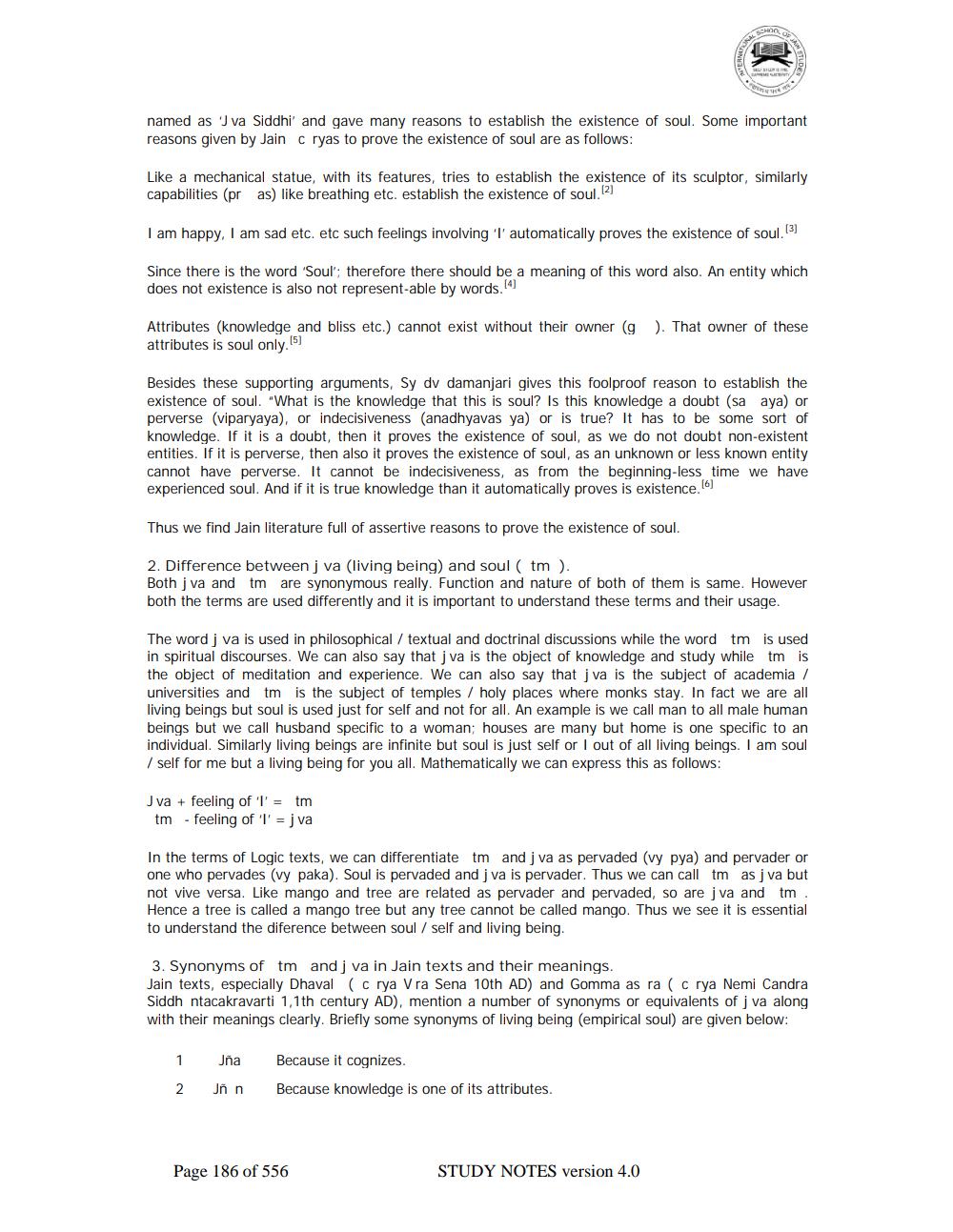________________
named as J va Siddhi' and gave many reasons to establish the existence of soul. Some important reasons given by Jain c ryas to prove the existence of soul are as follows:
Like a mechanical statue, with its features, tries to establish the existence of its sculptor, similarly capabilities (pras) like breathing etc. establish the existence of soul.2
I am happy, I am sad etc. etc such feelings involving 'l' automatically proves the existence of soul. (3)
Since there is the word 'Soul; therefore there should be a meaning of this word also. An entity which does not existence is also not represent-able by words.
). That owner of these
Attributes (knowledge and bliss etc.) cannot exist without their owner (g attributes is soul only.)
Besides these supporting arguments, Sy dy damanjari gives this foolproof reason to establish the existence of soul. "What is the knowledge that this is soul? Is this knowledge a doubt (sa aya) or perverse (viparyaya), or indecisiveness (anadhyavas ya) or is true? It has to be some sort of knowledge. If it is a doubt, then it proves the existence of soul, as we do not doubt non-existent entities. If it is perverse, then also it proves the existence of soul, as an unknown or less known entity cannot have perverse. It cannot be indecisiveness, as from the beginning-less time we have experienced soul. And if it is true knowledge than it automatically proves is existence.
Thus we find Jain literature full of assertive reasons to prove the existence of soul.
2. Difference between j va (living being) and soul ( tm). Both j va and tm are synonymous really. Function and nature of both of them is same. However both the terms are used differently and it is important to understand these terms and their usage.
The word j va is used in philosophical / textual and doctrinal discussions while the word tm is used in spiritual discourses. We can also say that j va is the object of knowledge and study while tm is the object of meditation and experience. We can also say that j va is the subject of academia / universities and tm is the subject of temples / holy places where monks stay. In fact we are all living beings but soul is used just for self and not for all. An example is we call man to all male human beings but we call husband specific to a woman; houses are many but home is one specific to an individual. Similarly living beings are infinite but soul is just self or I out of all living beings. I am soul / self for me but a living being for you all. Mathematically we can express this as follows:
Jva + feeling of 'l' = tm tm - feeling of 'l' = j va
In the terms of Logic texts, we can differentiate tm and j va as pervaded (vy pya) and pervader or one who pervades (vy paka). Soul is pervaded and j va is pervader. Thus we can call tm as j va but not vive versa. Like mango and tree are related as pervader and pervaded, so are j va and tm Hence a tree is called a mango tree but any tree cannot be called mango. Thus we see it is essential to understand the diference between soul / self and living being.
3. Synonyms of tm and j va in Jain texts and their meanings. Jain texts, especially Dhaval ( c rya Vra Sena 10th AD) and Gomma as ra ( c rya Nemi Candra Siddh ntacakravarti 1,1th century AD), mention a number of synonyms or equivalents of j va along with their meanings clearly. Briefly some synonyms of living being (empirical soul) are given below:
1 2
Jňa Un n
Because it cognizes. Because knowledge is one of its attributes.
Page 186 of 556
STUDY NOTES version 4.0




